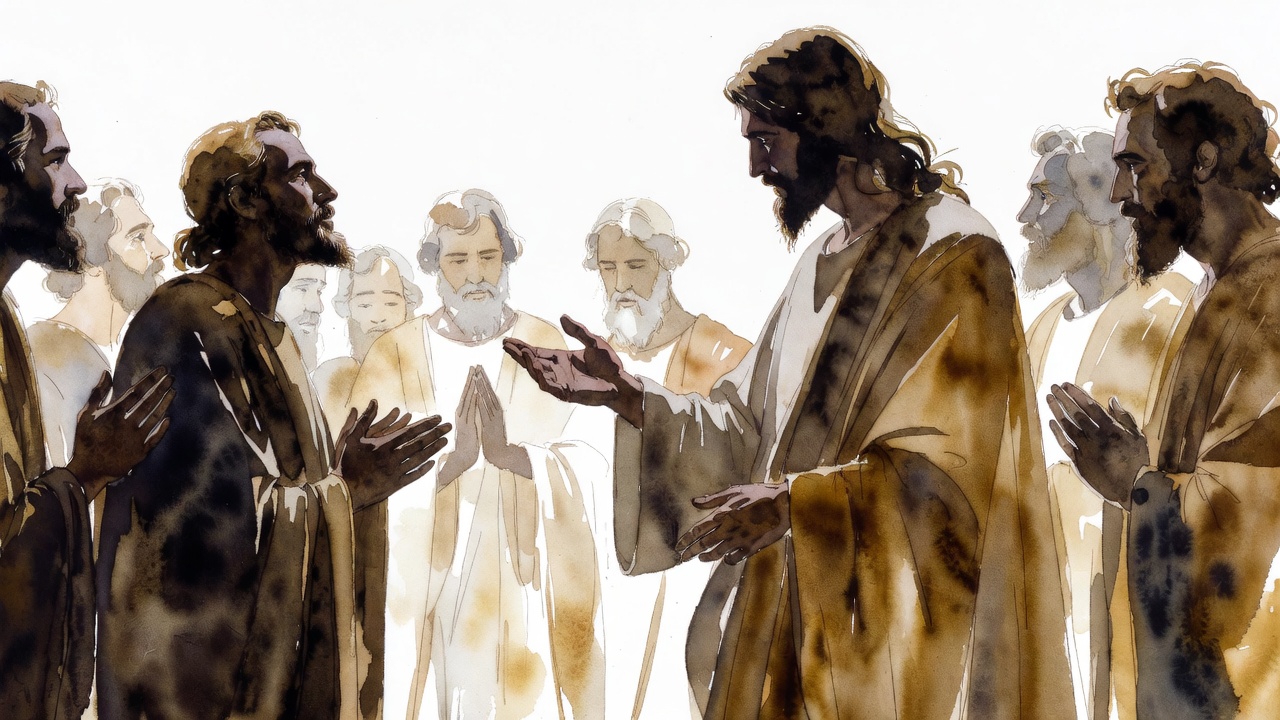A Prodigious Mind: Thomas Aquinas
Eight hundred years after his birth, the thought of Saint Thomas Aquinas continues to illuminate the dialogue between faith and reason, science and philosophy, with surprising relevance in today's world

The 800th anniversary of Saint Thomas Aquinas’s birth, which occurred in Naples in 122 AD, is being celebrated. A few days ago, a Congress on Catholic Thought focused on Saint Thomas Aquinas took place at the Complutense University of Madrid. It has sparked great interest in his innovative thinking, rooted in the previous tradition, based on Aristotle, Plato, and others.
Compendium of Theology and Anthropology
Saint Aquinas published many works on philosophy and theology, commentaries on the works of Aristotle and Boethius, and disputed issues among scholars on truth, the soul, virtues, and evil. He also wrote the Summa Contra Gentiles, which he intended to debate with non-believers, and above all, his magnum opus, the Summa Theological.
He worked on this Summa in Rome for several years, intending it to be a science of God and human salvation. It is divided into three extensive parts, each of which is further divided into questions and articles. The first part is dedicated to God himself and as the provident creator of all that exists. The second part is dedicated to God as humankind’s supreme and ultimate end and studies human acts, virtues, and vices—his anthropology, we might say. The third part deals with Jesus Christ, the fullness of revelation as the path to God, as well as the sacraments and eternal life.
The Angelic Doctor, as he is also known, is a master at gathering the best of those who came before—such as Augustine, Ambrose, or Albert the Great—and boldly projecting himself into the future, always in the service of faith, which in no way detracts from the rigorous exercise of reason. As we said, the Summa encompasses everything, from the supremely free Creator God to eternal Life.
From faith in Jesus Christ, he develops a Christian anthropology, that is, one that is distinctly human, valid in itself, and endowed with supernatural meaning. He addresses the moral concept of the human person through the exercise of virtues elevated by grace and the gifts of the Holy Spirit. As we live in society, relationships shape the path to maturity and excellence, which for Christians is holiness: God’s grace and human freedom come together so that humankind can reach fulfillment in Jesus Christ.
Knowing God
Everyone has heard of the famous ways or proofs of God’s existence, discussed in order in the first part of the Summa, question two, and article three. The point here is not to summarize them, but to approach the method they follow and their scientific validity. The problem is that many do not recognize that philosophy or theology are sciences, one hundred percent, because they only accept the paradigm of empirical sciences.
Aquinas begins by acknowledging that many think God does not exist, even though Scripture shows the contrary: God exists in Himself as a Personal Being who speaks and, driven by Love, acts on behalf of men. In each way, He starts from a fact of experience, not from an idea or supposition. And He follows an inductive method starting from an evident reality such as the movement of a river toward the sea or the growth of a young man in the virtue of fortitude. And He arrives at the conclusion that God is the “first unmoved mover,” the cause of all movement. The first uncaused cause, the absolute Being, the infinite Perfection, and the ultimate End of all.
But… the objection immediately arises, for it seems to diminish God as if He had to be concerned with moving the universe and its creatures, which is exhausting and absurd. However, an intellectual effort is required to grasp the act rather than the thing moved, the effect caused, the concrete ephemeral being, the incomplete perfection, or the presence of an end that acts by attraction.
The Angelic Doctor upholds the intellectual value of these proofs and their probative capacity, while being aware that God is not encompassable or comprehensible due to his absolute infinite reality. From something evident, we can infer the primordial cause through analogy, which shows the similarity with creatures and at the same time the infinite dissimilarity. For example, if we say that God is good, it is true, although in an absolutely different way than a good person: the latter is good without exhausting goodness, while God is the absolute Goodness that has given good beings a share in it.
Science and Philosophy
Man is a seeker of truth, and therefore the sciences seek causes according to their area of reality and the method specific to each. This is not the same for genetics as for astrophysics, for history as for theology. Philosophy, precisely, seeks the ultimate causes of each reality and of everything as a whole, with its own method based on the findings of empirical sciences, such as physics, psychology, or sociology.
The human sciences provide data and conclusions, but they cannot prove the existence of God, as they fall short, since God is not the object of scientific experimentation, precisely because He is not material and is “outside the world.” The task of philosophy is to gather the contributions of scientists and rational developments to make the leap from phenomena to their ultimate foundation.
Scientists verify that space, time, and matter indicate that they have an origin and an end not in themselves, and this is precisely the philosophical question: Is there an efficient cause capable of ontologically grounding reality and giving sufficient reason to our intelligence? Or perhaps everything is a product of chance?
Who is God?
The philosopher discovers that each thing does not have its foundation in itself because it has been caused “from outside” itself, and that chance or coincidence postpones the question without resolving it. We must not stop at the pointing finger (the empirical sciences) but look at the moon.
The question about the existence of God as a supreme being is of great importance, and it leads to who God is, what his reality is, what he asks of me, and what relationship I can have with him. And so we enter the realm of religion as a trusting relationship with God who speaks and awaits a response, who desires the good of each person and who grants his gifts to those who approach him with humility. The believer believes and knows and can speak with certainty and truth about God without encompassing him.
In short, and recalling the Summa of Aquinas, this is the Judeo-Christian vision of religion, of human anthropology, of the meaning of life, and of the call to collaborate with the personal God in the perfection of the created universe in a state of development. Let us therefore give thanks for the advances in empirical sciences, for the techniques that facilitate life, for the development of human rights, and for the answers of philosophy that continue to seek the inexhaustible truth because God is always more.
Related

What are we? The doctor, the soul, and the software of the cosmos
Observatorio de Bioética UCV
27 February, 2026
4 min

The divine art of loving those you didn’t choose… but God did!
Laetare
27 February, 2026
4 min

Behind every biolegislation there is always a biopolitics
Observatorio de Bioética UCV
25 February, 2026
9 min

An obedience discerned in faith and charity, the foundation of ecclesial communion
Patricia Jiménez Ramírez
24 February, 2026
4 min
 (EN)
(EN)
 (ES)
(ES)
 (IT)
(IT)


